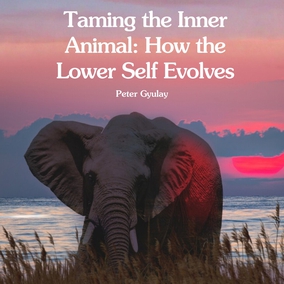The views expressed in our content reflect individual perspectives and do not represent the authoritative views of the Baha'i Faith.
We all evolve. No complex organism enters this world fully developed. Science has proven that all life evolves and matures one stage at a time.
This seemingly simple idea, called developmental stage theory in psychology, recognizes the fact that like all beings in nature, every person has a life cycle, and each of the stages in that cycle build on the former stage. In other words, we all evolve. Individual growth, scientists say, simply reflects a stepped-down version of the larger evolutionary process.

Aristotle
Our earliest scientific observers of nature—Aristotle, the medieval Islamic scholar Dinawari, Carl Linnaeus—all plotted plant and animal growth with simple measurements and found that growth comes in stages. These stages, others like Lamarck and Darwin later discovered, have a striking similarity in their patterns that applies in much the same way across the spectrum of all life forms. The contemporary scientists who study those patterns understand that growth and maturity mean more than simply getting bigger—they mean adding layers of complexity at each new stage.
This layer-upon-layer building of progressive complexity lies at the heart of all growth, maturation and evolution. Universally, life progresses along a predictable, progressive course from the simple to the not-so-simple, from the single to the multiple, from elemental to complex. This means the fundamental process of growth itself, no matter where it occurs, looks the same—because it proceeds in a systemic fashion through definable phases.
For example: we now have a fascinating photographic record of how babies develop in the womb, so we know scientifically that this stage-specific pattern of growth means all people constantly have a next stage evolving within them, whether they’re aware of it or not:
The suckling babe passeth through various physical stages, growing and developing at every stage, until its body reacheth the age of maturity. Having arrived at this stage it acquireth the capacity to manifest spiritual and intellectual perfections. The lights of comprehension, intelligence and knowledge become perceptible in it and the powers of its soul unfold. – Abdu’l-Baha, Selections from the Writings of Abdu’l-Baha, p. 285.
So, since science has proven that nature itself gradually evolves and differentiates, we can clearly understand that the simpler, more basic forms of life must appear first, becoming more complex as higher-order life-forms emerge. Nature, which organically mirrors our spiritual development, manifests itself in progressively organized grades, or steps, or levels.
Philosopher Ken Wilber and biologist Rupert Sheldrake coined the term “nested reality” for this phenomenon, saying that “in general hierarchy, the higher levels include or enfold or nest the lower.”
This happens not only in biology—it applies across every imaginable life form, discipline and activity. Even learning, whether for animals or humans, proceeds this way, from simplest to more and more complex in progressive levels. First babies learn to babble, then they start to differentiate sounds. Soon after they reach that stage, they begin making their first words, then phrases, then sentences. Why do we get excited about baby’s first word? Because it shows growth, progress and development.
The Baha’i teachings, and the teachings of every major Faith, embed this idea of progressive physical and spiritual evolution into the very core of what it means to be human:
… man must pass from degree to degree of progressive unfoldment until perfection is attained. For instance, if a man should live his entire life in one city, he cannot gain a knowledge of the whole world. To become perfectly informed he must visit other cities, see the mountains and valleys, cross the rivers and traverse the plains. In other words, without progressive and universal education perfection will not be attained.
Man must walk in many paths and be subjected to various processes in his evolution upward. Physically he is not born in full stature but passes through consecutive stages of fetus, infant, childhood, youth, maturity and old age ….
Briefly; the journey of the soul is necessary. The pathway of life is the road which leads to divine knowledge and attainment. Without training and guidance the soul could never progress beyond the conditions of its lower nature … – Abdu’l-Baha, The Promulgation of Universal Peace, pp. 295-296.
From this spiritual perspective on physical evolution, we can view our own increasing complexity, our inner maturational process, as part of that spiritual pathway of life Abdu’l-Baha describes:
All created things have their degree or stage of maturity. The period of maturity in the life of a tree is the time of its fruit-bearing. The maturity of a plant is the time of its blossoming and flower. The animal attains a stage of full growth and completeness, and in the human kingdom man reaches his maturity when the lights of intelligence have their greatest power and development. – Ibid., p. 438.
Have you reached that point in your life yet? Do your “lights of intelligence have their greatest power and development”?
Probably not, because no one can ever say that they’ve fully developed and matured. That’s the basic human condition: we always have room for improvement. No matter how much you know or how far you’ve matured, another stage of development awaits. In the next essay in this series, let’s look at learning itself, and see if it has lessons for spiritual growth and maturation.
















Comments
Sign in or create an account
Continue with Googleor